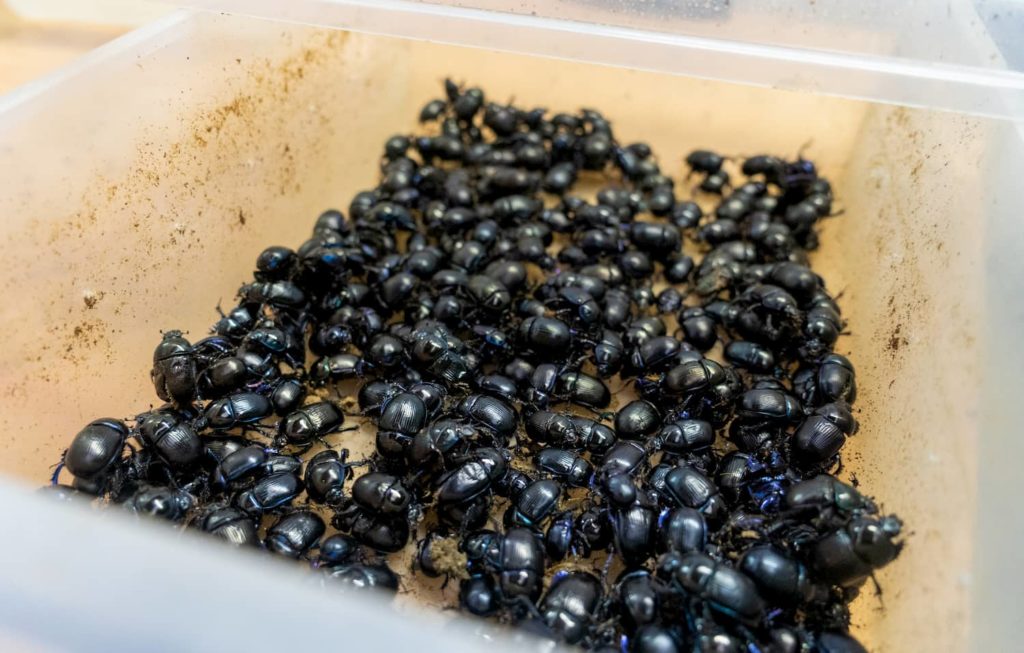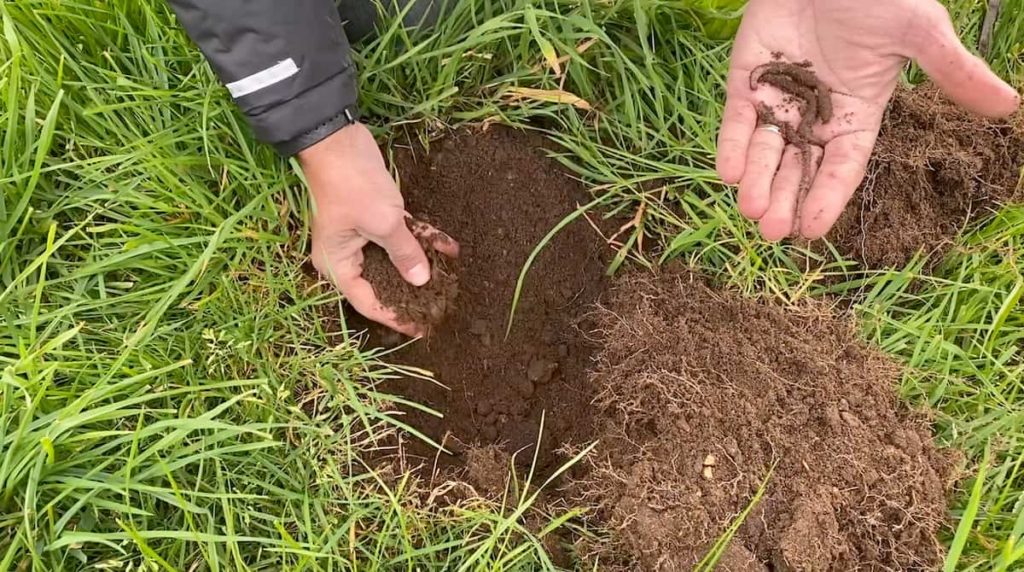Climate Change Mitigation
Soil
Soil is the often overlooked and underestimated buried treasure of farming. The soul of the earth and quite likely the answer to climate change for the planet. Farmers hold this in their hands.
There is accumulating evidence to show healthy soils are effective carbon sinks. For example, a recent Stanford study showed that there is more carbon sequestered in soil than in the atmosphere and plants combined.
Regenerative agriculture initiatives are key to the 10 Star Certified Program for the reason that carbon is the building blocks of all living things.
The top 6 inches of soil is paramount to food production, carbon sequestration and humanity’s survival.

Dung Beetles
Southern Pastures has worked with Landcare Research and Dung Beetle Innovations in funding the importation of dung beetles and the study of their beneficial effects on the environment. After a successfully trial on one of its South Waikato farms, Southern Pastures is now rolling the trial of the dung beetles out to some of its Canterbury farms.
Dung Beetles substantially improve pasture production and reduce farm run-offs with studies showing that it is even significantly more effective than riparian plantings. They also assist in sequestering soil carbon and reduce methane emissions thereby assisting in mitigating climate change.

Earthworms
Southern Pastures has introduced and established healthy populations of beneficial species of Epigeic, Endogeic and Anecic earthworms on its South Waikato farms that were devoid of any earthworms.
By feeding on plant litter and dung, earthworms move organic matter into and through the soil – increasing the nutrients available to pasture and improving the soil structure. Earthworms also assist in keeping grass grub populations at bay and help to reduce the incidence of facial eczema in cows.
Studies have shown that pasture production can increase materially as optimum earthworm populations are established.


